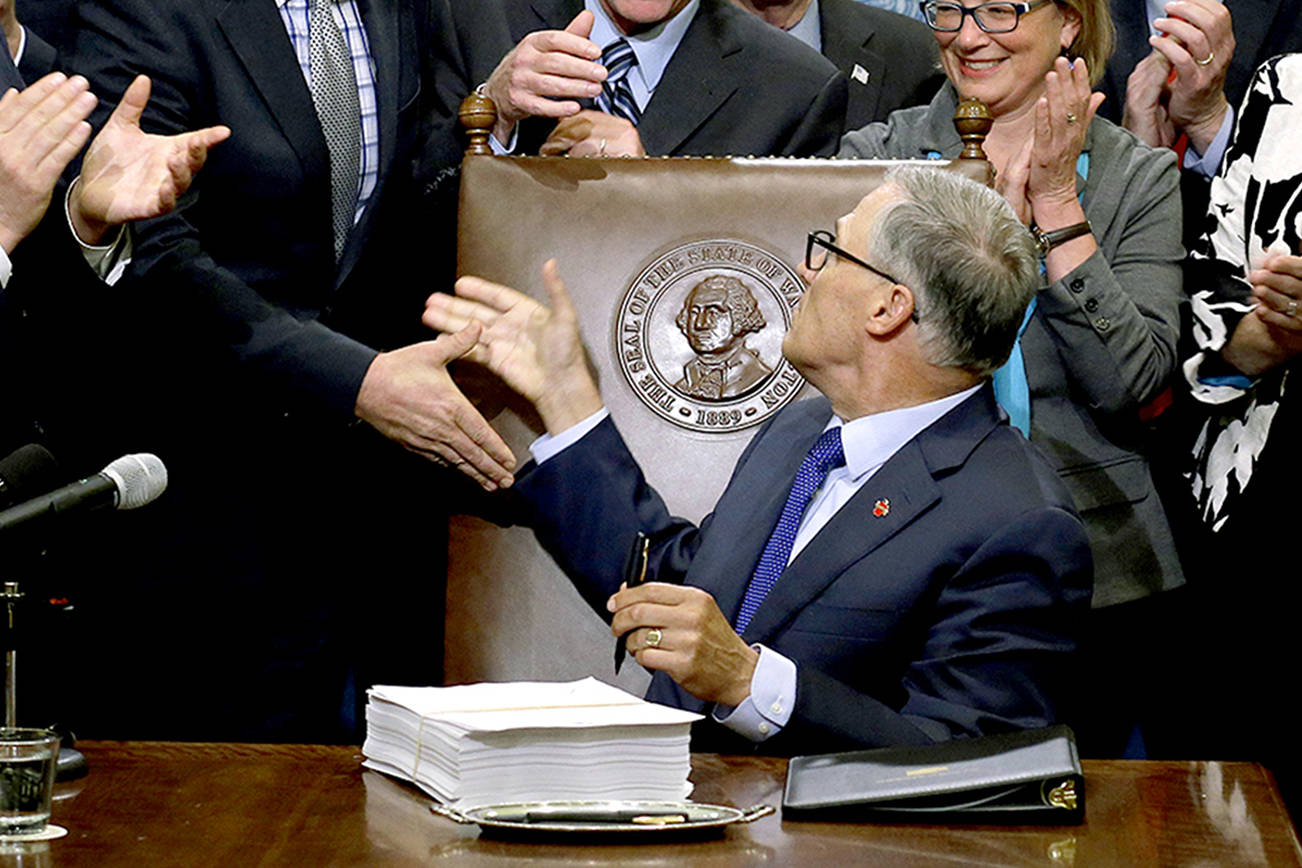In late June 2017, with a partial shut down of government looming, Gov. Jay Inslee reached a deal guaranteeing lawmakers a chance to influence future contract negotiations with thousands of state employees.
This was a critical moment in the marathon session and a notable win for Republicans.
Republican senators, who ruled their chamber with a slim philosophical majority, had dug in against funding the newest collective bargaining agreements. Republicans didn’t like the process in which the governor’s team negotiates the terms and lawmakers can only accept or reject them. They sought reforms and Democrats struggled to find ones with which they could agree.
The breakthrough came in the form of a Senate bill, which Inslee signed, reinvigorating the long dormant Joint Committee on Employment Relations, a panel made up of two members from each caucus in the House and Senate.
This panel would now meet at least six times a year. And a critical provision directs the committee to meet before the start of a new round of collective bargaining “to identify goals and objectives” that it wants the governor to consider during negotiations.
Yet when the chance arrived Tuesday to provide such counsel, legislators demurred.
“Do we have time to think through this? This needs a little thought,” said Sen. John Braun, R-Centralia, the committee’s chairman and the lead GOP budget writer.
Rep. Timm Ormsby, D-Spokane, chairman of the House Appropriations Committee, said he too had no suggestions at that moment.
No one objected when Braun suggested that they “work this offline.”
Negotiations with roughly two dozen unions will rev up in late winter and early spring and should wrap up by next fall. The joint committee is slated to meet again in April, if not sooner.
Rep. Drew Stokesbary, R-Auburn, a panel member and ranking Republican on the House budget committee, admitted afterwards he was a little surprised at the lack of engagement.
“I don’t think it was a missed opportunity,” he said, surmising that advice will get conveyed in writing or through another meeting before those talks reach the nitty gritty stage.
Stokesbary offered a couple examples. He said he’d like to see workers be required to pay a greater share of their health care costs. For most it’s 15%, he said. He sponsored a bill last session to increase the amount to 20%.
Another subject which has bugged Republicans for a while deals with assessing the tab of the contracts to taxpayers.
Under the current process, once negotiations are completed the Office of Financial Management, aka the governor’s budget office, decides if the contracts are “financially feasible.” In other words, can the state afford to pay them.
Republicans in 2017 wanted language clarifying the meaning and relented. Stokesbary said clarification is still desired.
“I want OFM to take that burden more seriously and weigh the costs against other costs,” he said. You can make a credible argument, he continued, that the only way the state funded them in the current two-year budget were with tax increases. Democrats rejected that assertion in the session.
Those are two concerns. Certainly, there are others.
Tuesday was an opportunity lawmakers secured for themselves to raise them and they didn’t take it.
Jerry Cornfield: 360-352-8623; jcornfield@herald net.com. Twitter: @dospueblos



